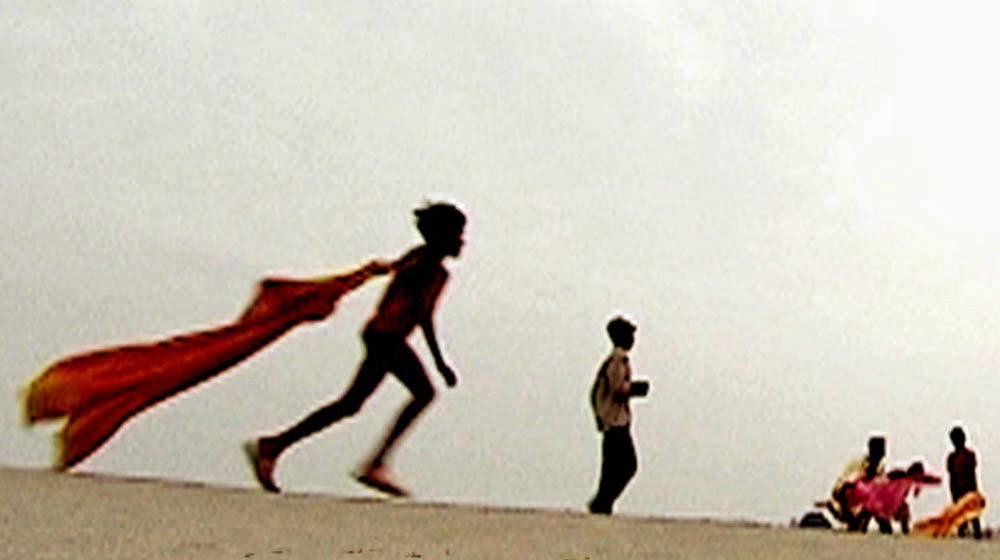Arbhaat Short Film Club : Last screening
The last session of Arbhaat Short Film Club was nothing short of memorable. As I prepared to leave the house, I began thinking of all the films I had seen, some that I had missed, and a few that I wish I had missed.
We are all familiar with death. For many years, I existed in a happy bubble where death only called upon others and loss was unknown. It was just a fact of life - something I knew I would have to deal with eventually, but sometime in the distant future. It all changed, as things inevitably do. Death was no longer impersonal, and it never receded into the background again.
If I could describe Rajesh S. Jala's documentary, 'Children of Pyre', in one world, it would be 'unsettling'. Many movies force us to face our own mortality - the good ones allow us to come to terms with it in one way or the other. 'Children of Pyre' tears down those blinkers by focusing on the life of seven children who work at the Manikarnika Ghat, in Varanasi.
Located on the banks of Ganges, Benares has always been a destination for the pious. And once we look past it's 'spirituality', it's other characteristics surface - filth, muck, tears, and a commercial view of all things religious. It is in this vein the film progresses - virtues of the holy city are not extolled, it's temples are not visited, it's sacred river does not qualify for a dip.
The documentary gives a new meaning to 'direct cinema', simply documenting the life and thoughts of seven odd boys who work as cremators. The film was shot over a period of 18 months, and consists primarily of conversation with the children, their unguarded, brutally honest responses to the questions asked by Jala, and their day to day life at the crematorium.
The film takes place on the crematorium, with the funeral pyres constantly burning in the background, but very little sorrow, that usually accompanies death is shown. There is a pragmatic relationship with Death, almost cynical, but truly, we all know - it's just business. There are a few scenes which take a toll - but they are simply the indicators of the magnitude of the harshness of the life of these children. How can we expect a child to burn the dead? To see the finality of death, something that surely chips away at innocence. Instead of going to school, these children work at the ghat. Their days are filled with a continuous blaze, the horrid heat of the pyres and the blazing sun, the nameless dread of the dead and the smoke that rises into the sky, taking their childhood along with it.
My heart just broke.
We are all familiar with death. For many years, I existed in a happy bubble where death only called upon others and loss was unknown. It was just a fact of life - something I knew I would have to deal with eventually, but sometime in the distant future. It all changed, as things inevitably do. Death was no longer impersonal, and it never receded into the background again.
If I could describe Rajesh S. Jala's documentary, 'Children of Pyre', in one world, it would be 'unsettling'. Many movies force us to face our own mortality - the good ones allow us to come to terms with it in one way or the other. 'Children of Pyre' tears down those blinkers by focusing on the life of seven children who work at the Manikarnika Ghat, in Varanasi.
Located on the banks of Ganges, Benares has always been a destination for the pious. And once we look past it's 'spirituality', it's other characteristics surface - filth, muck, tears, and a commercial view of all things religious. It is in this vein the film progresses - virtues of the holy city are not extolled, it's temples are not visited, it's sacred river does not qualify for a dip.
The documentary gives a new meaning to 'direct cinema', simply documenting the life and thoughts of seven odd boys who work as cremators. The film was shot over a period of 18 months, and consists primarily of conversation with the children, their unguarded, brutally honest responses to the questions asked by Jala, and their day to day life at the crematorium.
The film takes place on the crematorium, with the funeral pyres constantly burning in the background, but very little sorrow, that usually accompanies death is shown. There is a pragmatic relationship with Death, almost cynical, but truly, we all know - it's just business. There are a few scenes which take a toll - but they are simply the indicators of the magnitude of the harshness of the life of these children. How can we expect a child to burn the dead? To see the finality of death, something that surely chips away at innocence. Instead of going to school, these children work at the ghat. Their days are filled with a continuous blaze, the horrid heat of the pyres and the blazing sun, the nameless dread of the dead and the smoke that rises into the sky, taking their childhood along with it.
My heart just broke.



Comments
Post a Comment